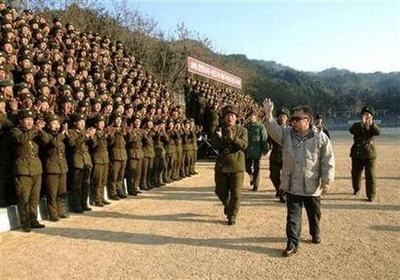Korean nuke talks hit another stumbling block
Updated: 2007-12-24 10:42
Washington over the weekend urged the Democratic People's Republic of Korea (DPRK) for "full disclosure" of its stashed nuclear materials, as the denuclearisation process met a new allegation concerning an aluminum pipe tainted with enriched uranium. The new suspicion is considered key to proving the DPRK has a clandestine uranium enrichment programme.
|
|
But the DPRK reportedly continued to deny any existence of a UEP, even to the latest US official in Pyongyang, US State Department director Sung Kim. Kim visited the DPRK from Wednesday to Friday of last week, and held talks with his South Korean counterparts over the weekend.
"I believe (the North) maintained its denial. As far as the declaration goes, there has been no development," a government source said on condition of anonymity.
US Secretary of State Condoleezza Rice in Washington urged Pyongyang to take sincere steps in a press conference on Saturday. "We have been very clear that we expect a declaration from the DPRK that is complete and that is accurate.
"I sincerely hope it will be the end of the year," she said with regard to the DPRK's declaration, adding that the US government does not have "permanent enemies" in an apparent attempt to show Washington's flexibility.
Underscoring the key was to "get the process right", Rice also reminded Pyongyang of how it will be rewarded with normalised relations with Washington. "What we have is a policy that is open to ending conflict and confrontation with any country that is willing to meet us on those terms."
Rice's message came after news reports in Washington said that scientists found traces of enriched uranium on smelted aluminum tubing provided to the United States by DPRK. The hand-over was originally an attempt by the North to quell the suspicion of a UEP, the reports said.
They suggested further complications in the declaration step delayed by the North, which remains hesitant to acknowledge the widely suspected UEP. The DPRK only admits to developing nuclear weapons through a more accessible method of reprocessing plutonium. Washington has been suspecting the DPRK of importing aluminum tubes from such countries as Russia to build centrifuges for running the UEP.
It remains a focal point to watch how the involved parties will settle on explaining the source of the contamination, observers said.
the DPRK has agreed at the six-party talks to disable the nuclear facilities and declare all existing nuclear programmes by the end of the year.
While the disablement work is carrying on without a hitch according to involved government sources, getting the list out of Pyongyang is turning out to be more arduous.
Sources have said that the deadline could be pushed back to mid-January by putting the priority on getting a "complete list", rather than an "insufficient one to meet the deadline".
The South Korean Foreign Ministry announced yesterday (Dec 23) that a trilateral three-day meeting among the two Koreas and China will open in Pyongyang on Tuesday, and deal with the energy aid promised to Pyongyang in return for the disablement and declaration.
The meeting will focus on drawing up a plan for an alternative energy infrastructure aid that will be part of the promised incentive worth one million tonnes of heavy fuel oil.
Ranking US and Chinese officials have visited the DPRK this month to persuade Pyongyang on what needs to be addressed in the declaration list to move forward.
Top nuclear envoys, Christopher Hill of the United States and Wu Dawei of China, visited Pyongyang earlier this month and underscored that the list must include explanations of its proliferation activities and all nuclear fissile materials.
Sung Kim, in the meantime, stopped over in Seoul briefly before returning to Washington yesterday.
"The US side explained that the disablement of the Yongbyon nuclear facilities is being implemented smoothly, and we also discussed what kind of attitude the NK authorities showed concerning the declaration," a government sources said, without elaborating further.
Yonhap News in Washington reported Saturday that Christopher Hill confronted the DPRK during his visit in the first week of this month about the uranium traces but that Pyongyang repeated it had never had a UEP.
"the DPRK did not respond. They said the DPRK never had an HEU (highly enriched uranium) programme," Yonhap quoted an official as saying on condition of anonymity.
The US disabling team brought sample parts from the tubes last month to the United States and had them examined by nuclear experts, the sources were quoted as saying.
The samples were reportedly a part of 140 metric tonnes of aluminum tubes from Russia the DPRK imported to use for their multiple-launch rocket system. The the DPRKns allegedly claimed that after the attempt failed, they melted most of the tubes except for a very few.
|
|
|
||
|
||
|
|
|
|
